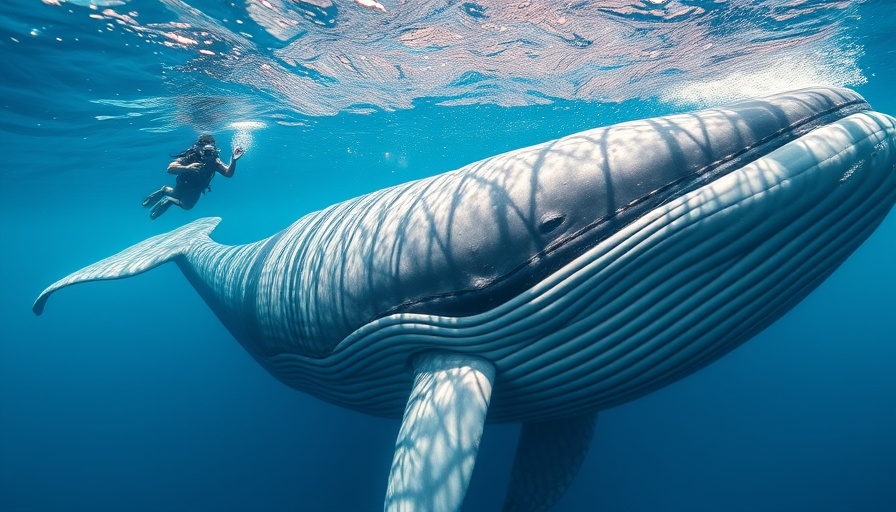
Protecting Giants of the Sea: The Sperm Whale Sanctuary Initiative
In a significant move to safeguard marine biodiversity, the Caribbean island of Dominica is leading efforts to establish a marine sanctuary dedicated to the protection of sperm whales. These majestic creatures face numerous threats, primarily due to human activities that have detrimental impacts on their habitats. Cecilia Vega, during a recent coverage for 60 Minutes, delves deep into this initiative that aims to create a haven not only for the sperm whales but also for the ecosystem that supports them.
Understanding the Threats: Pollution, Noise, and Ships
Sperm whale populations are increasingly vulnerable due to a trifecta of threats: plastic pollution, underwater noise pollution, and risky interactions with maritime vessels. Plastic waste, which has infiltrated our oceans, poses a significant risk as whales often ingest it, mistaking it for food. Additionally, underwater noise generated by ship traffic interferes with their communication and navigation, essential for their survival.
The Value of Marine Sanctuaries
Marine sanctuaries, like the one proposed in Dominica, serve as protected areas where human activity is regulated or restricted to promote marine conservation and biodiversity. These areas are crucial for preserving essential habitats and offering a safe environment for marine species to thrive. Experts note that the benefits of establishing such sanctuaries extend beyond just the wildlife, impacting local communities through sustainable tourism and preserving their cultural heritage tied to the ocean.
A Global Movement Toward Conservation
The push for marine sanctuaries is part of a broader global trend focused on environmental conservation. Countries worldwide are recognizing the urgent need to protect marine ecosystems. This initiative in Dominica reflects a growing consciousness about the health of our oceans and the creatures that inhabit them. It also aligns with international conservation agreements aimed at reducing biodiversity loss.
Community Involvement: Key to Success
Successful conservation efforts often hinge on the involvement of local communities. In Dominica, efforts to raise awareness about the significance of sperm whales and marine protection have started to gain traction. By engaging fishermen, educators, and locals in conservation discussions, these initiatives ensure that the community is invested in preserving their natural resources. Education programs emphasizing the ecological importance of sperm whales are paramount in changing perceptions and behaviors towards marine conservation.
Challenges Ahead: Overcoming Skepticism and Economic Pressures
While the concept of marine sanctuaries boasts numerous advantages, it faces challenges. Local fishermen and industries reliant on marine resources may view these regulations as restrictions that threaten their livelihoods. Overcoming skepticism and fostering cooperation will be essential for the sanctuary’s success. Through transparent discussions, emphasizing sustainable practices, and demonstrating the long-term benefits of marine conservation, stakeholders can mitigate these fears.
Future Implications: What Lies Ahead for Marine Life?
As the marine sanctuary moves from conception to realization, scientists and conservationists alike are optimistic. The establishment of a protected area could pave the way for revitalized sperm whale populations, leading to healthier marine ecosystems. Furthermore, it serves as a model for other Caribbean nations and beyond, showcasing how proactive measures can yield positive outcomes.
Conclusion: Taking Action for Our Oceans
The initiative to create a sperm whale sanctuary in Dominica is more than just a local effort; it's a crucial movement towards a sustainable future for marine life. By prioritizing conservation, we not only protect the majestic sperm whale but also preserve the ocean's integrity for future generations. As we reflect on these efforts, it is vital for each of us to consider what role we can play in protecting our planet's precious marine ecosystems. Engage with local conservation groups, reduce plastic usage, and advocate for change in your community—it all matters.
 Add Element
Add Element  Add Row
Add Row 



Write A Comment